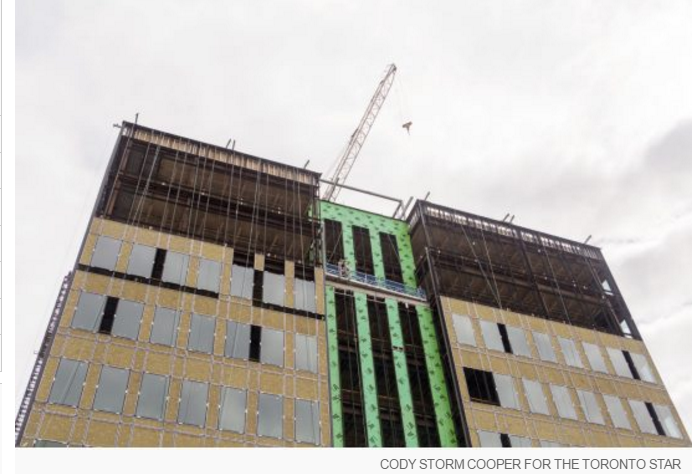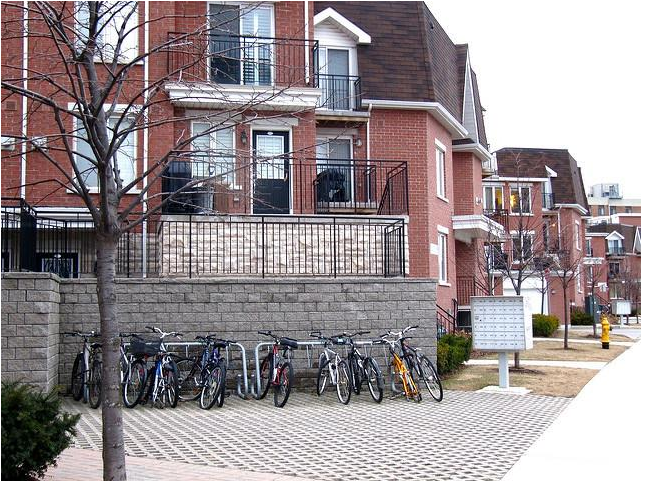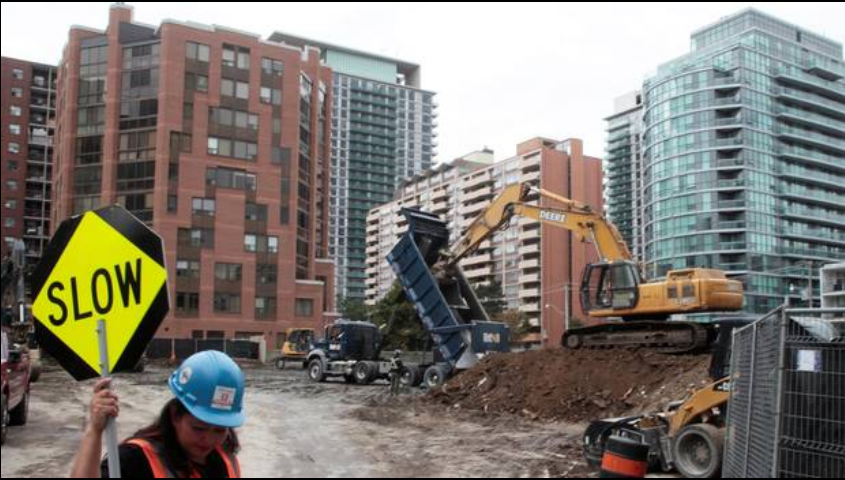Hundreds of investors sank $16.9 million into a syndicated mortgage on a high-profile Barrie development that had been marketed as secure, high-interest paying and RRSP eligible.
For ordinary consumers looking to boost their retirement savings, the sales pitch by the mortgage brokers who raise money for Fortress Real Development projects was compelling.
It hasn’t turned out as expected. The developer ran into financial trouble, the investors were left in limbo and Fortress has had to pick up the pieces.
Fortress had identified the Mady Collier Centre in Barrie as a hot prospect. The condo commercial tower to be built by an established developer on a prime downtown location fit many of the real estate investment firm’s criteria.
Invest in the “proven” market of Canadian real estate, the mortgage brokers’ websites proclaimed. Earn 8 per cent annual returns. Enjoy the “security” of having your investment registered as a mortgage against real property.
Two and a half years later, the Mady Collier Centre filed for bankruptcy protection from creditors. The syndicated mortgage investors’ claims against the property were wiped, falling behind a slew of other creditors, including a major bank and the construction trades.
The failure of the Barrie condo-commercial project comes amid a boom in syndicated mortgage lending.
Once the preserve of sophisticated investors, syndicated mortgages — where a group of people jointly invest in a single mortgage on a property — they’re now being sold to ordinary consumers.
In Ontario alone, investors pumped $4 billion into the syndicated mortgage market in 2014, up from $1.5 billion five years earlier, according to the industry’s regulator.
The skyrocketing figure — and the risks of a real estate downturn — are setting off alarm bells in some circles, raising questions about whether investors in this province are adequately protected.
“We’ve expressed concerns about the way these investments are portrayed because we’ve seen some advertising materials that tend to portray them as very safe and very secure investments, and they’re really neither,” says Neil Gross, executive director of the Canadian Foundation for Advancement of Investor Rights (FAIR Canada).
“Our concern is that people may be investing in these things believing they’re more in the nature of a conventional mortgage, where you’ve got a very sound and secure investment backed by the land itself, when in fact that may not be the case,” Gross said.
The Financial Services Commission of Ontario, which regulates the mortgage brokerage industry, says it has tightened up the rules around syndicated mortgage lending and cracked down on the worst offenders.
But critics say that’s not enough.
They want to see syndicated mortgages brought under the control of the Ontario Securities Commission, bringing it into line with most other provinces across Canada.
“Mortgage broker legislation is a whole lot looser than securities legislation,” says John Hollander, an Ottawa lawyer with loss recovery specialist firm Hollander Geller.
David Franklin, a long-time Toronto real estate lawyer, is representing an investor who put $80,000 into the Barrie project. Franklin says his client would never have become involved if she’d understood the real risks and costs of investing in early stage development projects.
“People go to these sales meetings. They’re told they can get 8 per cent (annual interest), which is well above what’s in the stock market. And it’s in real estate, so they think it’s safe,” he said.
Franklin said his client was already involved in real estate investing and was invited to a presentation on syndicated mortgages.
In October, 2012, the Barrie project’s prospects still looked good. The developer, Charles Mady, had a 40-year track record in the industry. A high-powered sales pitch convinced her to go ahead, Franklin said.
Her investment would be registered on title, secured against a property worth $21.8 million, according to an opinion of value letter from a reputable commercial real estate firm supplied by the mortgage brokerage.
The loan would be for two years, pay out 8 per cent a year, and if all went well, also deliver a 12 per cent deferred lenders’ fee when the project was completed, the brokers’ marketing materials also said.
Franklin said his client signed a raft of legally required documents, full of caveats and cautionary statements she didn’t understand. The monthly interest payments began rolling in.
All that changed in January, 2015, when Mady Collier was granted court protection from creditors, citing cost over-runs due to poor weather, the addition of an eight floor to the commercial tower and the failure of some sub-trades.
The company owed $50 million to various creditors, most of it to the Laurentian Bank, and to the construction trades. Both ranked ahead of the syndicated mortgage holders.
Court documents also shone a disturbing light on how much of the investors’ money had been used to pay up front fees and commissions, Franklin says.
Nearly $6 million of the $16.9 million raised had gone to pay sales and referral fee bonuses, marketing and promotional fees, mortgage broker fees and something called co-development/priority returns, according to court documents.
That’s 35 per cent of the total raised from the syndicated investors, Franklin notes. “Can you imagine if the investors knew 35 per cent of their money was going to Fortress and the brokers?” Franklin asks.
Fortress Real Developments defends its role in the Mady Collier deal, saying it received just $2.3 million in consulting fees for its services. Indeed, the company has emerged as the development’s saviour, buying it out of court-ordered protection, restarting construction and committing to repay the syndicated mortgage investors.
FDS Brokers Inc., the largest mortgage broker that sells Fortress-backed projects, says it discloses all of the risks and costs to investors as required by law.
But Franklin says there are no guarantees the syndicated investors will recover their money.
Read the full post in Toronto Star









